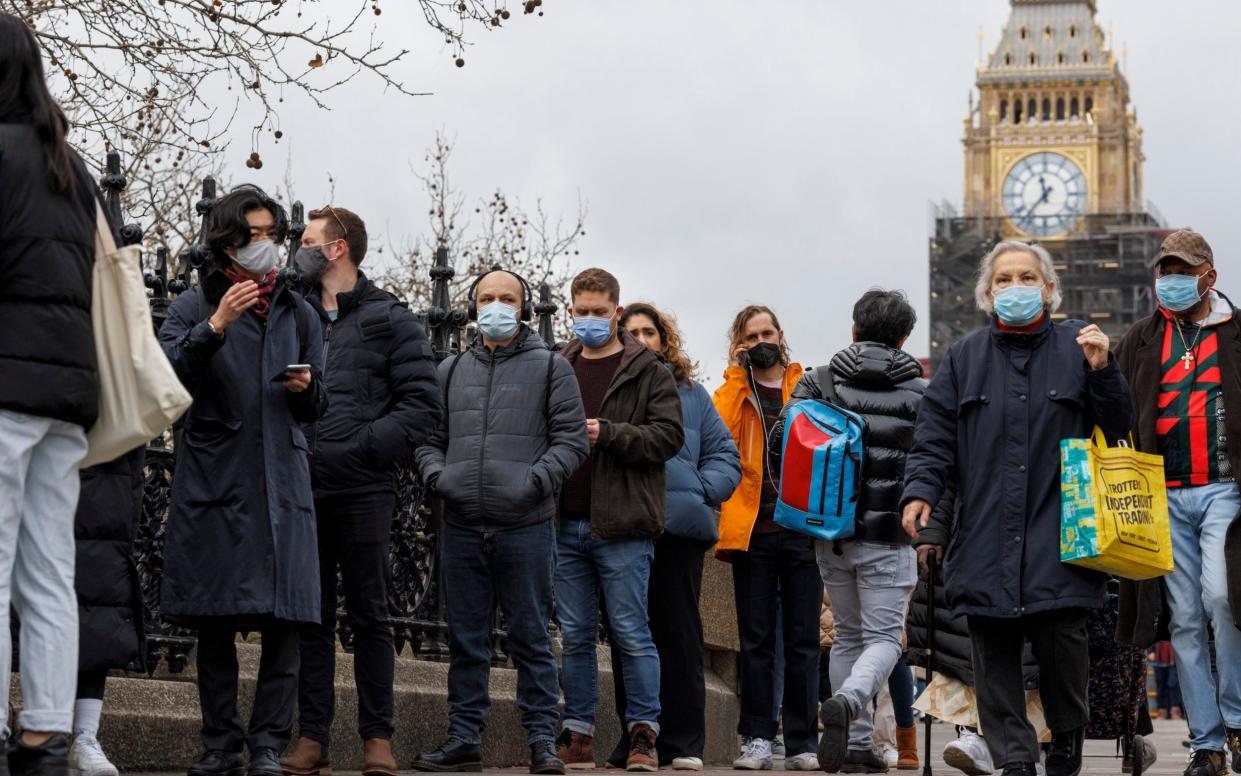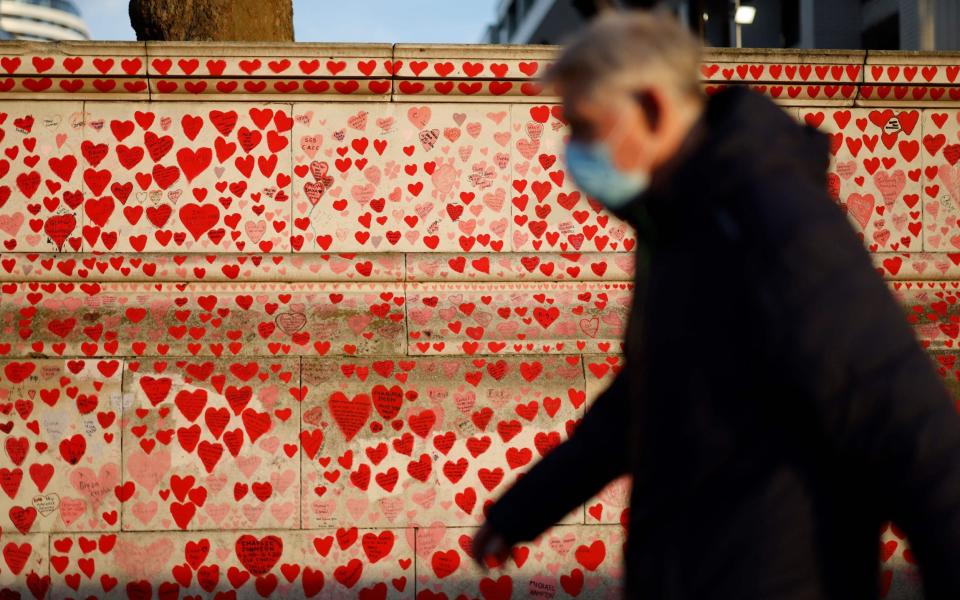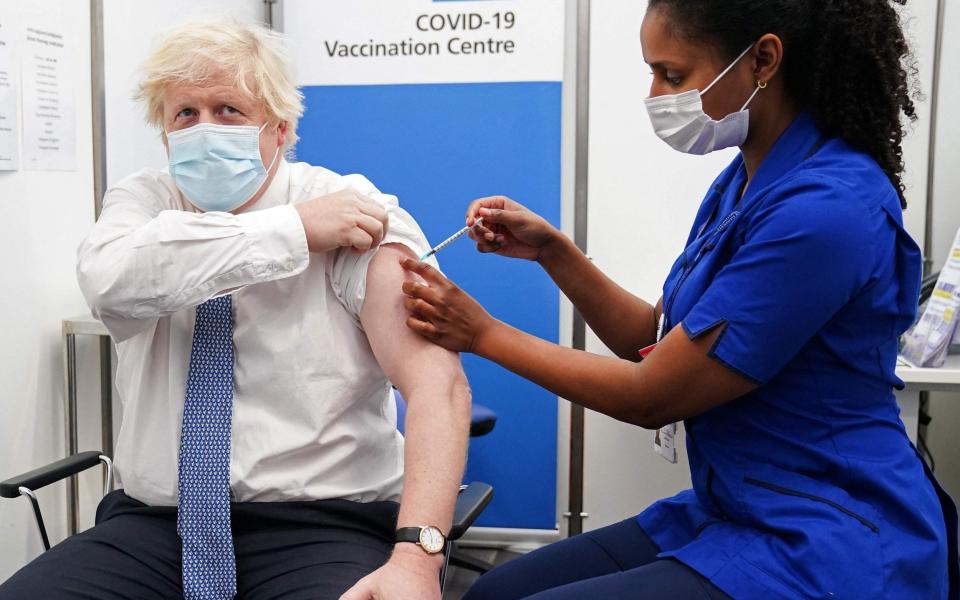Covid face masks ‘did not stop spread of Omicron’

Face masks did not stop the Omicron variant of Covid, a study has found.
The highly infectious Covid variant saw the reintroduction of rules such as mask-wearing, self-isolation, working from home and vaccine passports when it swept across Britain in November 2021.
New research has found that while these measures helped to halt Covid earlier in the pandemic, they had little to no effect on infection rates after Omicron arrived.
The study conducted by the University of East Anglia (UEA) found that face masks in particular were not effective once the first wave of Omicron had passed, although they had previously helped to reduce infection rates.
However, the public was forced to wear them again between November 2021 and January 2022 – having already endured a year of face coverings – with the threat of fines up to £6,400. Masks continued to be recommended and could be enforced by businesses until the April.
The researchers also found that wearing face masks after the first wave of Omicron may have actually increased the risk of children catching Covid during the subsequent waves because they had less immunity.
Professor Paul Hunter, lead author of the Norwich Medical School at UEA, told The Telegraph that “those people who didn’t wear masks got all their infections in the first couple of weeks [of the wave] and were then immune, whereas the people who had been wearing masks weren’t immune because they’d not had Covid up until that point”.
“The value of masks was always delaying the pandemic until most people had the vaccine,” he said. “Masks contributed to that, and so therefore probably saved many lives, but once Covid was here to stay, and certainly once Omicron came with it being much more infectious … masks were ultimately of no value for most people.”
Scientists, government advisers and politicians were split over when and for how long face coverings should be made mandatory throughout the pandemic.
They were first recommended around April 2020 as a tool to help people get back to work after lockdown as the Government made a U-turn on their use.
Boris Johnson, the Prime Minister at the time, said masks would be “useful” and “give people confidence they can go back to work”, before they were made mandatory in July 2020 for public transport, schools, hospitality and other public spaces under laws that lasted for a year.

They continued to be recommended throughout the summer of 2021 but were made mandatory again when Omicron caused cases to surge and continued to be recommended in guidance until April 2022.
Experts at UEA said that masks were linked to a 19 per cent reduction in infections early on in the pandemic but this did not account for the much more transmissible Omicron variant.
In their study, researchers found that adults who never wore masks were up to 30 per cent more likely to be infected, while for children it was 10 per cent, but these benefits were wiped out by February.
The researchers suggested that the masks only served to delay catching Covid, while those who had been previously exposed to the virus had greater immunity.
Prof Paul Hunter said: “Early in the pandemic there were many studies published looking at risk factors for catching Covid, but far fewer studies after the first year or so.
“Our research shows that there were changes in some risk factors around the time that the Omicron BA.2 variant became dominant.”
The mutations to the Covid virus in the Omicron variant led to it being highly contagious and more capable of escaping vaccine-induced immunity.

The study also found that factors such as living in a larger household of four or more people, belonging to an ethnic minority group, and working in health and social care, were all linked to a higher risk earlier in the pandemic but this was negligible after Omicron.
By the end of February 2022 the reduced chance of infection seen from being retired, or living with someone over 70, had disappeared, while the risk for adults living with children also diminished.
The scientists also said travelling abroad was not associated with an increased risk prior to February 2022 but then became a significant risk.
Dr Julii Brainard, co-author of the same school, said: “This isn’t totally surprising because laboratory evidence suggests that the Omicron variant was better able to infect the cells lining the upper respiratory tract than previous variants and so be more transmissible.
“Management of infection risk needs to be agile, adapting to epidemic development and better-quality information when it emerges,” she said.
“To prevent infections we need to have a good view of which factors might be most or least relevant. If those factors can change, we need to be alert to that happening.”
The researchers analysed data from the Office for National Statistics (ONS) Covid survey which ran from November 2021 to May 2022 and estimated infection rates and asked people questions to see if what factors may be linked to testing positive.
Several sub-types of the Omicron variant continue to be the most dominant in the UK, according to health authorities.
The study was funded by the National Institute for Health and Care Research (NIHR) Health and published in PLOS ONE.

